World’s First COVID-19 Vaccine Launched by Russia Ahead of Completion of Final Testing
|
By HospiMedica International staff writers Posted on 12 Aug 2020 |
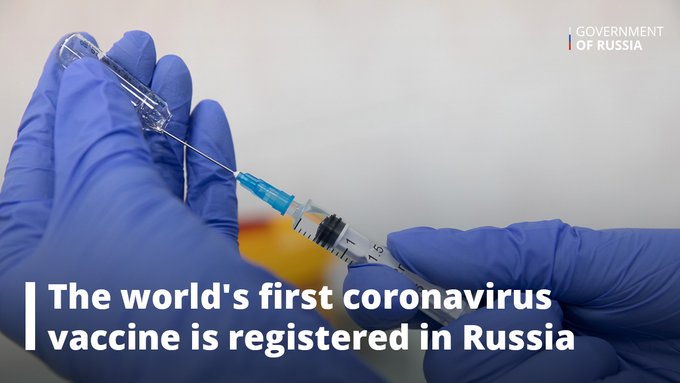
Illustration
Russia became the first country to approve an experimental COVID-19 vaccine which will be administered to millions of people, including thousands of teachers and front-line health-care workers over the coming weeks even before the completion of its clinical trial.
Announcing the Health Ministry’s approval, Russian President Vladimir Putin said that the vaccine, named Sputnik-V, had undergone the necessary tests and had demonstrated providing lasting immunity to the coronavirus, according to the Associated Press. However, Russian authorities are yet to offer any proof to back up claims of safety or effectiveness of the COVID-19 vaccine.
Sputnik-V has been tested on some volunteers, although Russia has not yet completed the larger type of study required to prove its safety and protection against infection by the coronavirus. Russian scientists have not yet published any scientific information about the vaccine’s performance in animal tests or early-stage human studies. As a result, scientists in Russia and across the world have expressed concern that offering the vaccine before the completion of final-stage testing could be dangerous.
Similar to the approach adopted for the AstraZeneca-Oxford COVID-19 vaccine, the Sputnik-V vaccine also uses the common cold-causing adenovirus that has been modified to carry genes for the “spike” protein that coats the coronavirus, in order to prime the body to recognize if a real COVID-19 infection strikes. The vaccine, developed jointly by the Gamaleya Research Institute and the Russian Defense Ministry, has two separately-injected components that together are expected to build a long-term immunity against the virus. A recent statement by the Russian Health Ministry said that the vaccine is expected to provide immunity from the coronavirus for up to two years, based on its experience with vaccines developed using similar technology. Russia has reportedly received preliminary applications for over one billion doses of the Sputnik-V vaccine from 20 countries and was ready to manufacture 500 million doses of the vaccine annually in five countries. Amidst warnings by experts that improperly tested vaccines could be harmful to health and undermine trust in vaccinations, Russia plans to start vaccinating doctors as early as this month and mass vaccinations by October.
“Fast-tracked approval will not make Russia the leader in the race, it will just expose consumers of the vaccine to unnecessary danger,” said Russia’s Association of Clinical Trials Organizations, in urging government officials to postpone approving the vaccine without completed advanced trials.
Announcing the Health Ministry’s approval, Russian President Vladimir Putin said that the vaccine, named Sputnik-V, had undergone the necessary tests and had demonstrated providing lasting immunity to the coronavirus, according to the Associated Press. However, Russian authorities are yet to offer any proof to back up claims of safety or effectiveness of the COVID-19 vaccine.
Sputnik-V has been tested on some volunteers, although Russia has not yet completed the larger type of study required to prove its safety and protection against infection by the coronavirus. Russian scientists have not yet published any scientific information about the vaccine’s performance in animal tests or early-stage human studies. As a result, scientists in Russia and across the world have expressed concern that offering the vaccine before the completion of final-stage testing could be dangerous.
Similar to the approach adopted for the AstraZeneca-Oxford COVID-19 vaccine, the Sputnik-V vaccine also uses the common cold-causing adenovirus that has been modified to carry genes for the “spike” protein that coats the coronavirus, in order to prime the body to recognize if a real COVID-19 infection strikes. The vaccine, developed jointly by the Gamaleya Research Institute and the Russian Defense Ministry, has two separately-injected components that together are expected to build a long-term immunity against the virus. A recent statement by the Russian Health Ministry said that the vaccine is expected to provide immunity from the coronavirus for up to two years, based on its experience with vaccines developed using similar technology. Russia has reportedly received preliminary applications for over one billion doses of the Sputnik-V vaccine from 20 countries and was ready to manufacture 500 million doses of the vaccine annually in five countries. Amidst warnings by experts that improperly tested vaccines could be harmful to health and undermine trust in vaccinations, Russia plans to start vaccinating doctors as early as this month and mass vaccinations by October.
“Fast-tracked approval will not make Russia the leader in the race, it will just expose consumers of the vaccine to unnecessary danger,” said Russia’s Association of Clinical Trials Organizations, in urging government officials to postpone approving the vaccine without completed advanced trials.
Latest COVID-19 News
- Low-Cost System Detects SARS-CoV-2 Virus in Hospital Air Using High-Tech Bubbles
- World's First Inhalable COVID-19 Vaccine Approved in China
- COVID-19 Vaccine Patch Fights SARS-CoV-2 Variants Better than Needles
- Blood Viscosity Testing Can Predict Risk of Death in Hospitalized COVID-19 Patients
- ‘Covid Computer’ Uses AI to Detect COVID-19 from Chest CT Scans
- MRI Lung-Imaging Technique Shows Cause of Long-COVID Symptoms
- Chest CT Scans of COVID-19 Patients Could Help Distinguish Between SARS-CoV-2 Variants
- Specialized MRI Detects Lung Abnormalities in Non-Hospitalized Long COVID Patients
- AI Algorithm Identifies Hospitalized Patients at Highest Risk of Dying From COVID-19
- Sweat Sensor Detects Key Biomarkers That Provide Early Warning of COVID-19 and Flu
- Study Assesses Impact of COVID-19 on Ventilation/Perfusion Scintigraphy
- CT Imaging Study Finds Vaccination Reduces Risk of COVID-19 Associated Pulmonary Embolism
- Third Day in Hospital a ‘Tipping Point’ in Severity of COVID-19 Pneumonia
- Longer Interval Between COVID-19 Vaccines Generates Up to Nine Times as Many Antibodies
- AI Model for Monitoring COVID-19 Predicts Mortality Within First 30 Days of Admission
- AI Predicts COVID Prognosis at Near-Expert Level Based Off CT Scans
Channels
Critical Care
view channel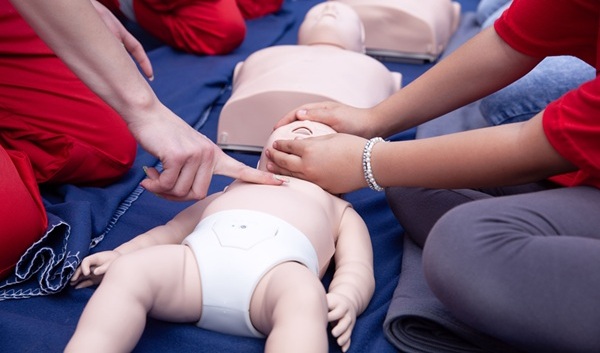
CPR Guidelines Updated for Pediatric and Neonatal Emergency Care and Resuscitation
Cardiac arrest in infants and children remains a leading cause of pediatric emergencies, with more than 7,000 out-of-hospital and 20,000 in-hospital cardiac arrests occurring annually in the United States.... Read more
Ingestible Capsule Monitors Intestinal Inflammation
Acute mesenteric ischemia—a life-threatening condition caused by blocked blood flow to the intestines—remains difficult to diagnose early because its symptoms often mimic common digestive problems.... Read more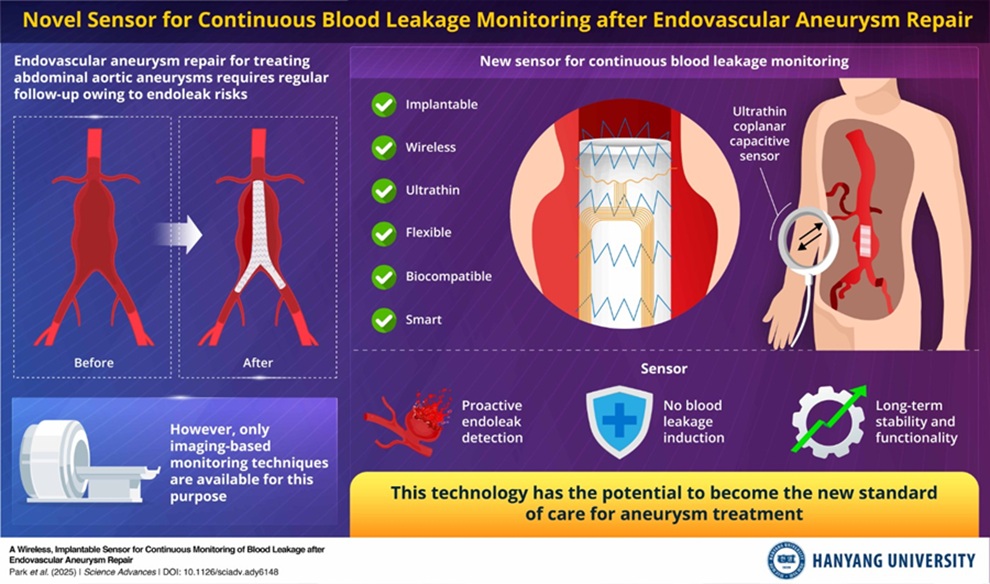
Wireless Implantable Sensor Enables Continuous Endoleak Monitoring
Endovascular aneurysm repair (EVAR) is a life-saving, minimally invasive treatment for abdominal aortic aneurysms—balloon-like bulges in the aorta that can rupture with fatal consequences.... Read more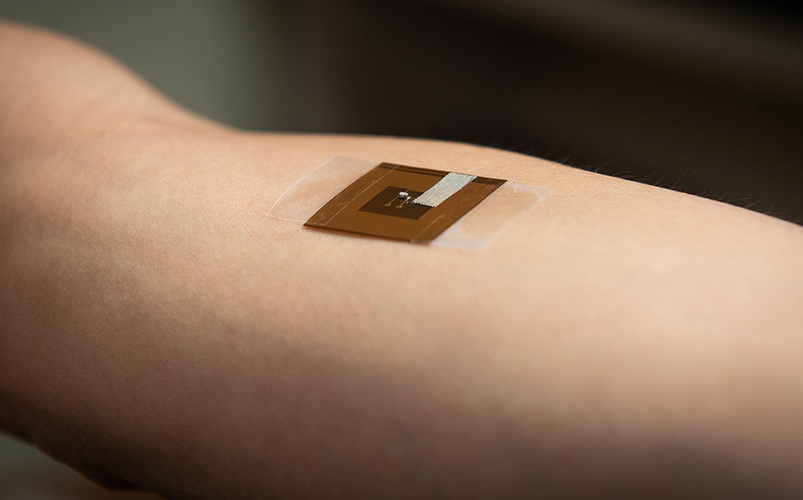
Wearable Patch for Early Skin Cancer Detection to Reduce Unnecessary Biopsies
Skin cancer remains one of the most dangerous and common cancers worldwide, with early detection crucial for improving survival rates. Traditional diagnostic methods—visual inspections, imaging, and biopsies—can... Read moreSurgical Techniques
view channel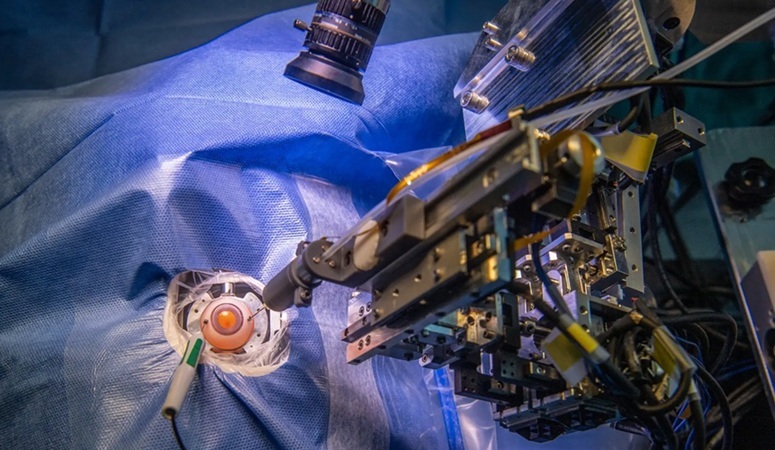
Robotic Assistant Delivers Ultra-Precision Injections with Rapid Setup Times
Age-related macular degeneration (AMD) is a leading cause of blindness worldwide, affecting nearly 200 million people, a figure expected to rise to 280 million by 2040. Current treatment involves doctors... Read more
Minimally Invasive Endoscopic Surgery Improves Severe Stroke Outcomes
Intracerebral hemorrhage, a type of stroke caused by bleeding deep within the brain, remains one of the most challenging neurological emergencies to treat. Accounting for about 15% of all strokes, it carries... Read morePatient Care
view channel
Revolutionary Automatic IV-Line Flushing Device to Enhance Infusion Care
More than 80% of in-hospital patients receive intravenous (IV) therapy. Every dose of IV medicine delivered in a small volume (<250 mL) infusion bag should be followed by subsequent flushing to ensure... Read more
VR Training Tool Combats Contamination of Portable Medical Equipment
Healthcare-associated infections (HAIs) impact one in every 31 patients, cause nearly 100,000 deaths each year, and cost USD 28.4 billion in direct medical expenses. Notably, up to 75% of these infections... Read more
Portable Biosensor Platform to Reduce Hospital-Acquired Infections
Approximately 4 million patients in the European Union acquire healthcare-associated infections (HAIs) or nosocomial infections each year, with around 37,000 deaths directly resulting from these infections,... Read moreFirst-Of-Its-Kind Portable Germicidal Light Technology Disinfects High-Touch Clinical Surfaces in Seconds
Reducing healthcare-acquired infections (HAIs) remains a pressing issue within global healthcare systems. In the United States alone, 1.7 million patients contract HAIs annually, leading to approximately... Read moreHealth IT
view channel
Printable Molecule-Selective Nanoparticles Enable Mass Production of Wearable Biosensors
The future of medicine is likely to focus on the personalization of healthcare—understanding exactly what an individual requires and delivering the appropriate combination of nutrients, metabolites, and... Read moreBusiness
view channel
Philips and Masimo Partner to Advance Patient Monitoring Measurement Technologies
Royal Philips (Amsterdam, Netherlands) and Masimo (Irvine, California, USA) have renewed their multi-year strategic collaboration, combining Philips’ expertise in patient monitoring with Masimo’s noninvasive... Read more
B. Braun Acquires Digital Microsurgery Company True Digital Surgery
The high-end microsurgery market in neurosurgery, spine, and ENT is undergoing a significant transformation. Traditional analog microscopes are giving way to digital exoscopes, which provide improved visualization,... Read more
CMEF 2025 to Promote Holistic and High-Quality Development of Medical and Health Industry
The 92nd China International Medical Equipment Fair (CMEF 2025) Autumn Exhibition is scheduled to be held from September 26 to 29 at the China Import and Export Fair Complex (Canton Fair Complex) in Guangzhou.... Read more














